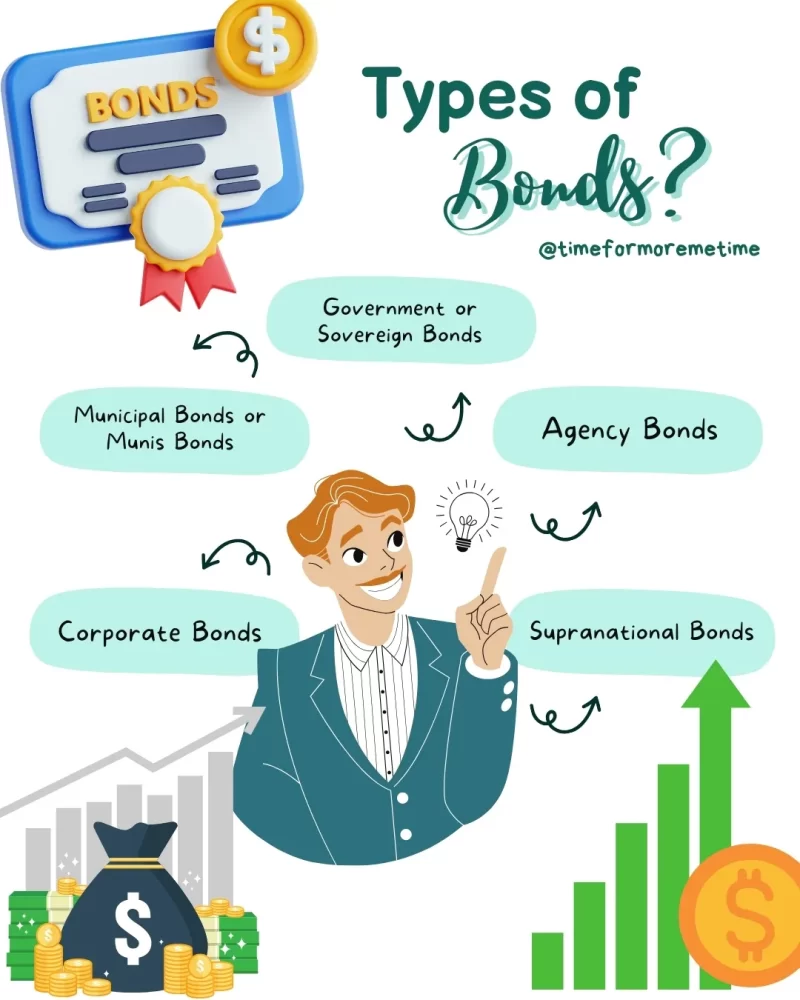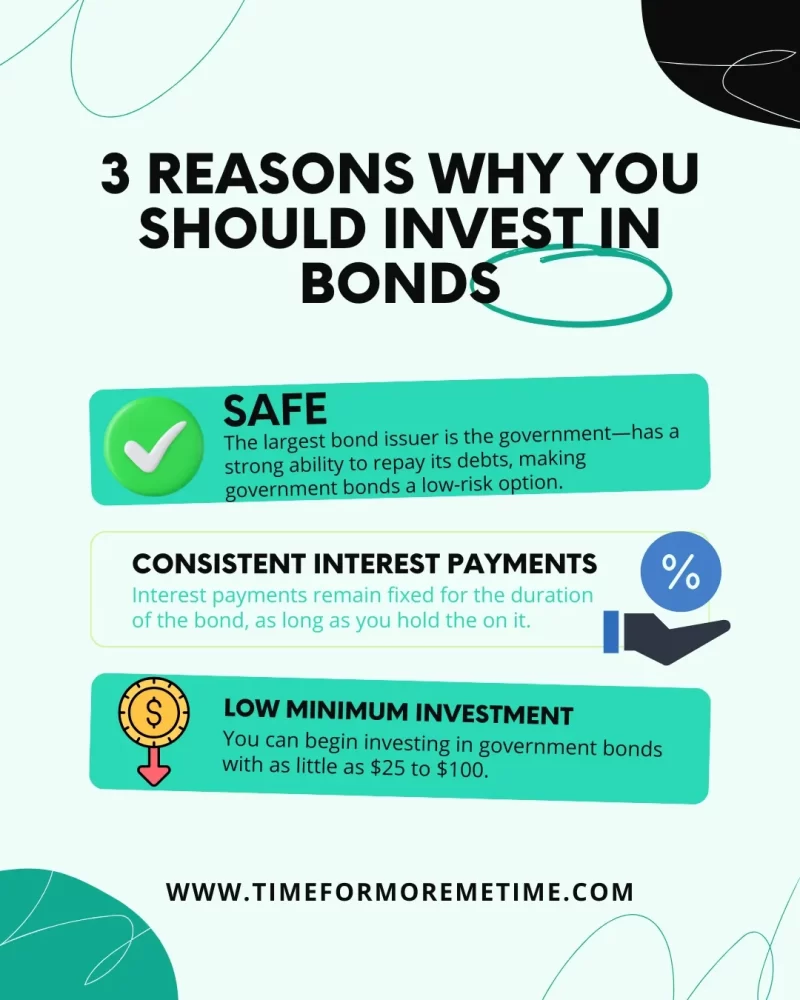Deciding how to invest your money can be confusing, especially with so many options available. One investment option you might consider is bonds. But what exactly are bonds? In this post, I will explain what they are and how they work. Let’s get started!
What Are Bonds

Bonds are a type of financial instrument that you can invest in. Financial instruments are items that have monetary value, which can be either physical (like cash) or non-physical (like loans). A bond represents a financial contract in which an investor lends money to a borrower, typically in exchange for periodic interest payments and the return of the principal amount at maturity.
There are several different types of bonds, including:
- Government or Sovereign Bonds: These are bonds issued by the federal government. They can vary based on maturity dates and include various subtypes, such as Treasury bonds, notes, and bills.
- Municipal Bonds or Munis Bonds: These bonds are issued by local governments, such as states, cities, and counties. The interest earned from municipal bonds is often exempt from federal income tax and, in some cases, state and local taxes.
- Corporate Bonds: These are bonds issued by companies. Corporate bonds typically offer higher yields than government bonds but come with higher risk, as they are not backed by the government.
- Agency Bonds: These bonds are issued by government-sponsored enterprises (GSEs), which are created by the government to support specific sectors, such as housing.
- Supranational Bonds: These are bonds issued by international organizations, such as the International Monetary Fund (IMF) or the World Bank, to fund projects that benefit multiple countries.
Each type of bond has its own characteristics, risks, and potential returns, making it important for investors to understand their options.
Where Can You Buy Bonds
You can buy bonds primarily in two markets: the primary market and the secondary market.
In the primary market, you can purchase bonds directly from issuers, such as governments or corporations, when they are first offered for sale. This allows you to buy bonds at their initial offering price.
A notable example of a primary market is the U.S. Treasury, which you can access through TreasuryDirect.gov. TreasuryDirect is the official platform for purchasing U.S. government savings bonds and other Treasury securities. It is the only place where you can buy electronic savings bonds directly from the government.
Meanwhile, in the secondary market, you can buy and sell bonds through a brokerage account. This market allows you to trade bonds that have already been issued, giving you access to a wider variety of bonds and potentially different prices based on market conditions.
A good example of a platform operating in the secondary market is robo-advisors like Acorns. These services primarily assist users in investing in bonds that are already in circulation. Bonds in circulation are those that have been previously issued and are now being traded among investors, allowing for the buying and selling of these bonds for cash or other bonds.
Why Should You Invest In Bonds

Investing in bonds is considered one of the safest types of investments. The largest bond issuer is the government, which has a strong ability to repay its debts, making government bonds a low-risk option. Additionally, bonds gives periodic interests, which can serve as a steady stream of income, although these payments are generally smaller compared to returns from other financial instruments.
Another advantage of investing in bonds is the relatively low minimum investment required to get started. You can begin investing in government bonds with as little as $25 to $100. For corporate bonds, the minimum investment is typically around $1,000.
It’s important to note that because government bonds are very safe, their coupon rates (interest rates) tend to be lower, usually ranging from 1% to 3%. This is similar to the interest you might earn from a savings account at a bank. In contrast, corporate bonds generally offer higher coupon rates, averaging between 3% and 7%, reflecting the higher risk associated with lending to corporations.
When Is The Best Time To Invest In Bonds
The best time to invest in bonds is generally as soon as you have the budget to do so, especially for government bonds, which are considered low-risk investments. Investing early allows you to start earning interest sooner, helping your money grow over time. By purchasing bonds now, you can take advantage of compounding interest and potentially increase your overall returns.
However, if you are considering corporate bonds, it is important to take several factors into account before making your investment. One key factor to consider is the timing of coupon rate changes or yields. When bond prices fluctuate, its yield (the updated coupon rate based on the coupon rate and new price), you can potentially earn more interest payments—or lower depending on the market conditions.
To maximize your returns, aim to purchase bonds when yield or coupon rates are high and bond prices are low.
Conclusion
Bonds are one of the most straightforward financial instruments available, making them an excellent starting point for new investors. They offer a reliable option for those seeking stability and a consistent income stream through interest payments.
If you found this information helpful, consider subscribing to our blog for more insights, following us on social media for updates, and checking out our YouTube channel for informative videos!
Source:
- Photo: Unsplash: krakenimages






